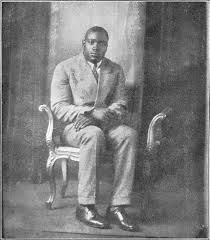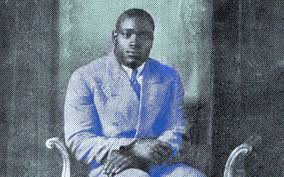Introduction
Alger “Texas” Alexander was a powerful voice in early Texas blues, known for his passionate vocal delivery and compelling storytelling. Although his career peaked in the 1920s and 1930s, Alexander’s influence stretched far beyond his own era, leaving a lasting mark on the blues tradition and inspiring generations of musicians. His work, often performed without instrumental accompaniment, provides a raw and unfiltered glimpse into the soul of the blues.
Early Life
Alger Alexander was born in Jewett, Texas, on September 12, 1900. Raised in the rural heart of Leon County, he grew up during a time of immense social and economic hardship for African Americans in the South. Music, particularly the blues, became a vital form of expression in his community, and Alexander found his voice early on.
Despite limited formal education, Alexander’s understanding of the blues was profound. He developed a distinctive singing style characterized by its powerful projection and free-form phrasing. This unique vocal approach often made it difficult for musicians to accompany him, and as a result, he frequently recorded without guitar or with musicians willing to adapt to his vocal pace.
Rise to Prominence
Alexander’s recording career began in 1927 with Okeh Records. His first recordings, including “Levee Camp Moan Blues” and “Range In My Kitchen Blues,” displayed a raw, emotional depth that captured the attention of blues audiences. These early recordings stood out not only for their stark realism but also for their haunting delivery.
Throughout the late 1920s and early 1930s, Alexander recorded prolifically. He worked with some of the most respected blues and jazz musicians of his time, including Blind Lemon Jefferson, Lonnie Johnson, and King Oliver. His collaborations with Johnson, a masterful guitarist, are especially notable, with Johnson’s nimble fretwork providing a striking contrast to Alexander’s booming voice.
Style and Influence
Texas Alexander’s vocal style was deeply rooted in field hollers and the older African American work songs tradition. Unlike many blues singers who sang within the constraints of 12-bar blues form, Alexander would often bend and break the timing of his lines, making his phrasing unpredictable and deeply expressive.
His lyrics reflected the struggles of everyday life—poverty, injustice, love, and loss—resonating deeply with listeners. His recordings became a touchstone for the Texas blues sound, influencing later musicians such as Lightnin’ Hopkins (his cousin), who credited Alexander with helping him understand the emotional core of the blues.
Challenges and Later Years
Despite his success in the recording world, Alexander faced many challenges. His style fell out of commercial favor by the mid-1930s, and he recorded less frequently. Additionally, in the early 1940s, Alexander served time in prison, reportedly for murder, though details surrounding the case remain unclear.
After his release, Alexander attempted to return to performing, though he never regained the prominence he once held. His later recordings, such as those done in the late 1940s, show a mature but weathered voice, still brimming with intensity.
Death and Legacy
Texas Alexander died on April 18, 1954, in Richards, Texas. Although he never achieved widespread fame during his lifetime, his contributions to the blues have only grown in appreciation with time. His recordings are now considered essential documents of early Texas blues, offering insight into the regional styles and vocal traditions that shaped the genre.
Today, Alexander is remembered as a pioneer whose music helped define the emotional depth and narrative power of the blues. His legacy lives on through reissues of his recordings and the continued admiration of blues historians and musicians.
Conclusion
Alger “Texas” Alexander may not be a household name, but for those who delve into the roots of the blues, his voice is unforgettable. Raw, real, and profoundly human, Alexander’s music remains a testament to the power of the blues to give voice to those on society’s margins. His life story reminds us of the enduring impact one voice can have on a musical tradition that continues to evolve and inspire.


No responses yet